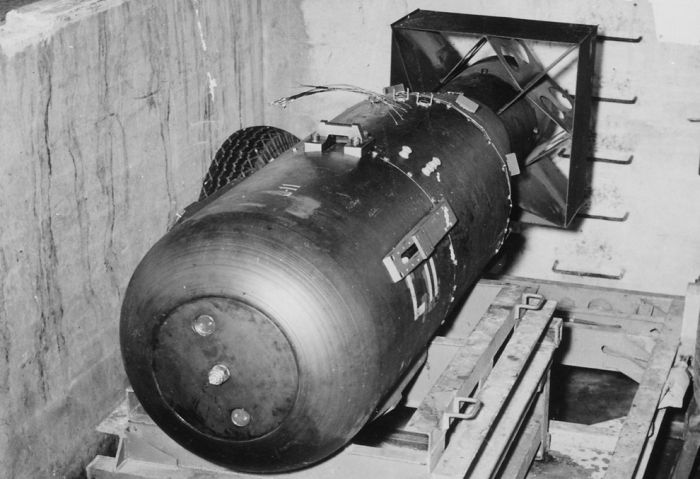|
|
History: Atomic Bombing Of Hiroshima, Japan
|
Some of the reinforced concrete buildings in Hiroshima had been very strongly constructed because of the earthquake danger in Japan, and their framework did not collapse even though they were fairly close to the blast center. Eizo Nomura (野村 英三 Nomura Eizō) was the closest known survivor, who was in the basement of a reinforced concrete building (it remained as the Rest House after the war) only 170 m (560 ft) from ground zero (the hypocenter) at the time of the attack. Akiko Takakura (高蔵 信子 Takakura Akiko) was among the closest survivors to the hypocenter of the blast. She had been in the solidly built Bank of Hiroshima only 300 meters (980 ft) from ground-zero at the time of the attack. Since the bomb detonated in the air, the blast was directed more downward than sideways, which was largely responsible for the survival of the Prefectural Industrial Promotional Hall, now commonly known as the Genbaku, or A-bomb Dome. This building was designed and built by the Czech architect Jan Letzel, and was only 150 m (490 ft) from ground zero. The ruin was named Hiroshima Peace Memorial and was made a UNESCO World Heritage site in 1996 over the objections of the U.S. and China. The Memorial monument for Hiroshima was built in Hiroshima for bombing victims.
Events of August 7–9
After the Hiroshima bombing, President Truman issued a statement announcing the use of the new weapon, and promising that:
|
|









